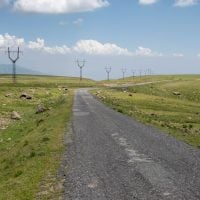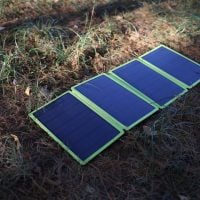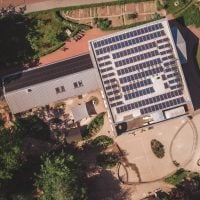Deadline: 28-Mar-23
The European Commission (EC) has launched an open call for Land-based Bioprospecting & Production of Bioactive Compounds & Functional Materials for Multiple Bio-based Value Chains.
Scope
- Global terrestrial biodiversity remains a largely untapped source of natural bioactive molecules and compounds, often combined with interesting potential functional properties of high economic and social value. Such chemical diversity and structural complexity may be matched with biological potency and selectivity. While some of the natural biochemical diversity has been studied, the potential for developing new applications and products is far from exhausted. There are still significant opportunities to improve the biodiscovery process as well as understanding of specific biochemical pathways leading to high-value applications, especially with those with a reduced Green House Gas (GHG) emissions, in various sectors, based on novel biochemicals and functional bio-based materials.
- This will increase capacity in the European biotechnology sector and other industries to respond to society’s needs. The challenge is to match sustainable sourcing and processing with efficient and cost-effective use. This calls for close cooperation between industrial and academic partners, with due consideration for health/safety and environmental legislation, and informed public engagement.
Funding Information
- The check will normally be done for the coordinator if the requested grant amount is equal to or greater than EUR 500 000, except for:
- Public bodies (entities established as a public body under national law, including local, regional or national authorities) or international organisations; and
- Cases where the individual requested grant amount is not more than EUR 60 000 (lowvalue grant).
Eligible Activities
- Activities should address:
- Technical improvements of the bioprospecting of any land-based organisms for potential bioactive compounds and functional materials, based on identified suitable sources of feedstock. The bioprospecting may be “bio-guided” by the study of chemical ecology interspecific interactions (symbiotic/defence) such as, for instance, plant-insects, or microbial-insect/plant/fungus interactions.
- Addressing sustainable biodiscovery, including by advanced detection methods, such as in silico database analysis, microfluidics/lab-on-chip, high-throughput screening, machine learning, etc, overcoming the issues of low concentrations of target molecules, and their general scarcity, and use of natural biological resources from diverse terrestrial environments and ecosystems, allowing better assessment of the selected bioactivity/functional property potential.
- Defining and assessing the optimal further production routes via innovative approaches and systems/platforms (e.g., biotechnology, hydroponics, bioreactors), as well as economic feasibility assessment of these options for resulting bioactive compounds and functional materials, ensuring full valorisation of biomass and all by-products in the production routes, and biomass’ sustainable supply, and, if appropriate, proposing an outline of continuation of the end-product development beyond the project timeline and its present resources.
- Assessing and clearly communicating, by inclusive communication and dissemination strategies, the environmental and climate benefits (e.g., by lowering the pressure on the natural habitats (decrease of harvesting in situ), supporting nature conservation, and increase overall resource efficiency and sustainability), while expanding the range of natural ingredients for the new applications in industrial sectors.
- Covering the environmental, climate and safety/health impacts of the developed ingredients or processes, using Life-Cycle Assessment (LCA) methodologies based on available standards, certification, and accepted and validated approaches. Estimate of possible negative environmental impacts and trade-offs should be provided. The need to guarantee biodiversity preservation and compliance with relevant international rules on access to biological resources, their sustainable use and the fair and equitable sharing of benefits from their utilisation, with the national regulations in the source countries and with the Convention on Biological Diversity and its Nagoya Protocol.
- Food, biofuel and bioenergy applications are not in scope. Agricultural crop protection products (chemical pesticide substitutes) are also not in scope, to avoid overlaps with a parallel topic. Marine and aquatic ecosystems are also out of scope to avoid overlap with parallel topics[4] and projects funded under the recent call. For any health-related applications, complementarities with Horizon Europe Cluster ‘Health’ should be carefully explored, to avoid duplications, and seek synergies.
Expected Outcomes
- A successful proposal will contribute to all Destination ‘Circular economy and bioeconomy sectors’ impacts related to consumers and industry, in particular to development of innovative and sustainable value-chains in the bio-based sectors and of European industrial sustainability, competitiveness and EU resource independence / strategic autonomy. It will also contribute via research on biotechnology and other enabling technologies, as a prerequisite and driver of future solutions for the bioeconomy transition.
- Project results are expected to contribute to all of the following outcomes:
- Enhanced understanding of terrestrial biodiversity and the limits and potentials of its valorisation;
- Addressing the need of sustainable sourcing and development of novel natural, sustainable and ‘eco-friendly’ (including ‘climate-friendly’) materials and product ingredients for various sectors and applications. These will eventually deliver clear-cut benefits for consumers by being more effective and/or eco-friendly, cheaper, better for climate, and more readily accessible than existing fossil-based alternatives;
- Improved sustainable exploitation, cultivation and processing methods based on promising species/organisms (including complex inter-species communities), and chosen production routes; leading to a diminished pressure on the natural resources (especially biodiversity) in situ.
- Increased competitiveness of European biotechnology, in particular the SMEs sector.
- Increased public knowledge and awareness of connections between biodiversity and biotechnology and its potentials, leading to increased trust in the scientific approaches based on informed and robust communication and mutual-learning efforts.
Eligibility Criteria
- Any legal entity, regardless of its place of establishment, including legal entities from nonassociated third countries or international organisations (including international European research organisations) is eligible to participate (whether it is eligible for funding or not), provided that the conditions laid down in the Horizon Europe Regulation5 have been met, along with any other conditions laid down in the specific call topic.
- A ‘legal entity’ means any natural or legal person created and recognised as such under national law, EU law or international law, which has legal personality and which may, acting in its own name, exercise rights and be subject to obligations, or an entity without legal personality.
- Beneficiaries and affiliated entities must register in the Participant Register before submitting their application, in order to get a participant identification code (PIC) and be validated by the Central Validation Service before signing the grant agreement. For the validation, they will be asked to upload the necessary documents showing their legal status and origin during the grant preparation stage. A validated PIC is not a prerequisite for submitting an application.
Specific cases
- Affiliated entities — Affiliated entities (i.e. entities with a legal or capital link to a beneficiary which participate in the action with similar rights and obligations to the beneficiaries, but which do not sign the grant agreement and therefore do not become beneficiaries themselves) are allowed, if they are eligible for participation and funding.
- Associated partners — Associated partners (i.e. entities which participate in the action without signing the grant agreement, and without the right to charge costs or claim contributions) are allowed, subject to any conditions regarding associated partners set out in the specific call conditions.
- Entities without legal personality — Entities which do not have legal personality under their national law may exceptionally participate, provided that their representatives have the capacity to undertake legal obligations on their behalf, and offer guarantees to protect the EU’s financial interests equivalent to those offered by legal persons.
- EU bodies — Legal entities created under EU law including decentralised agencies may be part of the consortium, unless provided for otherwise in their basic act.
For more information, visit European Commission.









































